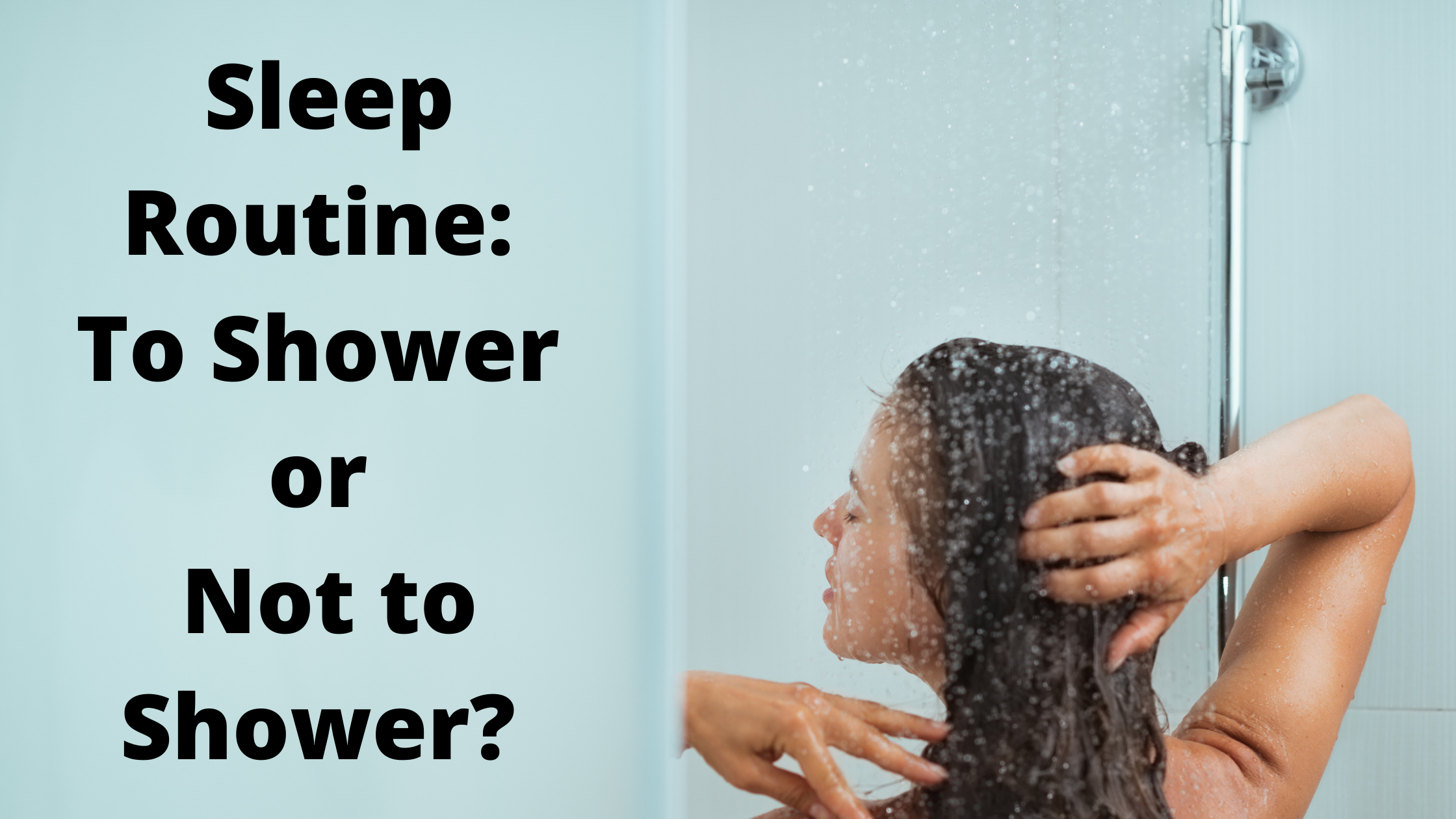We write a lot about sleep hygiene, or creating a sleep routine and engaging in healthy sleep habits for optimal sleep. This means creating a list of activities that you do every night to get your mind and body ready for bed. This can include wind down activities like reading, drinking a cup of tea, yoga, etc. But what about showering? Many people love to have that warm shower or bath right before going to bed. Is it a good activity to include in your sleep hygiene? Continue reading to find out.
What is sleep hygiene?
Sleep hygiene is the culmination of pre-sleep routines/habits that impact your sleep. If you have trouble with insomnia, stress or rumination, or anything else that can impede your sleep, a sleep routine may be what you're missing. When you do the same activities over and over, you are training your mind and body so it recognizes when it's time to go to bed. Your body can begin to release certain hormones, like melatonin, which can help to induce sleep. Your body can start changing temperature and preparing for restoration. And your mind can begin to slow down so it can be sharp for the next day.
Sleep training is not just for babies and toddlers. Everyone should continue following a sleep routine for the rest of their lives. It helps to establish a routine, and also helps you to have more nights of good sleep than poor sleep. You can create one yourself, or work with a sleep professional or your primary care physician to create one. These can include:
- Yoga
- Packing your lunch for the next day
- Stretching
- Having a mug of tea
- Reading
- Family time
You can make this list look however you want, as long as they are activities that relax you and reduce your exposure to blue light.
How does sleep hygiene impact my sleep?
Sleep hygiene can have a profound effect on your sleep, especially if you are someone who struggles to sleep. Those with insomnia, restless leg syndrome, anxiety, depression, or any other sleep disorder that impedes your ability to get a good night's sleep, can benefit greatly from creating a sleep hygiene. Even though other parts of your brain and body make going to sleep difficult, training them may assist you with winding down.
Also, if you have a significant amount of stress in your life, it may be hard to wind your brain down before going to bed. Sleep hygiene can also assist with that. You have to sleep, regardless of how long your to-do list is. So, working on ways to settle your mind so you can maximize your sleep may help you be more productive.
Should a shower be included?
Body temperature lowers at night. Showers tend to influence body temperatures, so it is a good question to wonder if it's a good idea to take a shower before going to bed.
There are benefits of showering before bed. When it's incorporated into your bedtime routine, a shower may help send your brain a signal that it's time to sleep. Showering at night can also help you be cleaner when you go to bed, reducing the buildup of sweat, dirt, and body oils on your bedding.
More and more research suggests that taking a hot shower or bath before bed can improve sleep. In the hours before you go to bed, your body temperature cools while the skin temperatures of your hands and feet increase.
Taking an evening bath or shower between 104-108.5 degrees Fahrenheit improves the quality of sleep. Those who bathe or shower one to two hours before bed fall asleep faster, and this may be because warm water stimulates blood flow to the hands and feet, which allows body heat to escape more quickly.
Research on cold showers has not been as straightforward. Some have been promising, while others have not. Research is learning more towards hot showers to improve sleep quality. Try incorporating it into your sleep schedule and see if it helps. If you still have sleep troubles, then please click the orange button below to speak with a sleep professional.
https://www.sleepfoundation.org/sleep-hygiene/shower-before-bed


